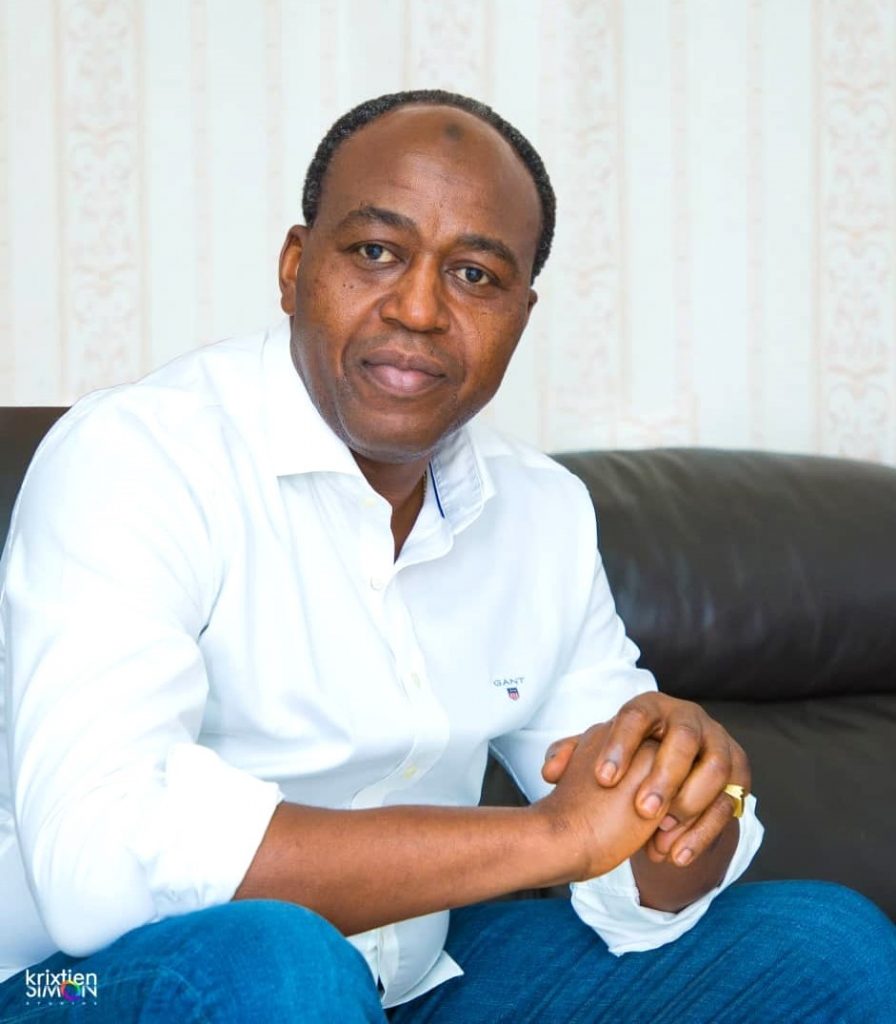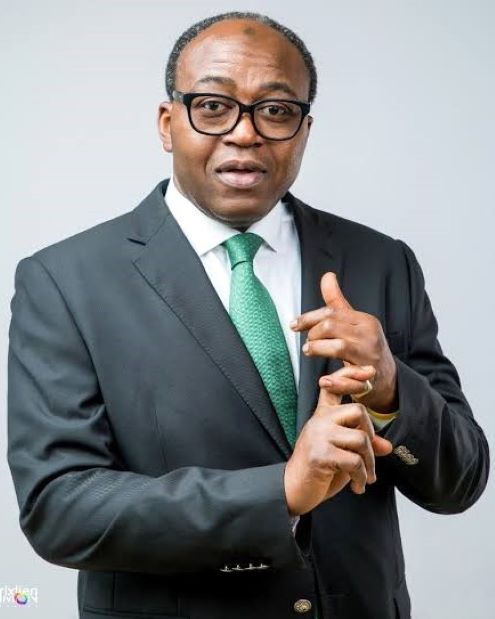Yinka Folami: I don’t fight, but engage in professional dialogue
Posted on: February 6, 2024, by : uguru okorieThe National Association of Nigerian Travel Agencies (NANTA) is heading for an election this year to elect new national executives for the association. One of the leading contenders for the position of president is Mr. Yinka Folami. He currently the National Vice President, Lagos Zone. In addition to being in travel industry, Folami is a communicator and an educationist.
He spoke with Africa Travel herald on his vision for NANTA and wants to lead NANTA into a new era of unity and creation of mutual opportunity for members. Excerpts:

Yinka Folami
FIFTY years down the line, what has NANTA achieved and what should be the focus moving forward?
50 years down the line, NANTA has become a formidable association that has a voice. So, when people tell me that NANTA has no voice, I just look at them. I am also a student of communication. I worked in a communication company for about six years, and we were involved in building brands. So, NANTA has gotten to a point of recognition. It has gotten to a point where the whole members, industry stakeholders and Nigerians recognize what or who NANTA is. So, we are already there. We are at a point where we can be advising government, and we can be advising different states; we are also at a point where we can run our campaigns against any stakeholder that is working negatively towards our collective aspirations.
So, we must thank our founding fathers, and we must thank all the past presidents that had in one way or the other contributed to where NANTA is today.
Let me give you an example: one of the leaders I so much admire is Bernard Bankole. They did well, but when I saw his NANTA Identity Card, because I have a communications background, I understand that a brand has to get to the point of identity. I said yes, NANTA is serious. I decided to pay a lot of attention. So, that is where we are.
The Nigerian travel industry is facing challenging times vis-à-vis cost of tickets, value of the naira and so on. Industry practitioners have to come with creative ideas to keep them in business, so looking at this scenario, how are you going to tackle some these challenges?
You see, we are already tackling them. We have been engaging government; we have been engaging IATA, and we have been engaging the airlines.
On the issue of transport, it is an economic issue; it is an economic challenge to the country. So, we keep saying that government should be government, and that whatever bilateral arrangements that government has with these airlines, the government should fulfill them.
If you have been following, all the backlogs that have been on queue, as at today, we have information, that they have been cleared by the government.
So, trapped funds, cost of tickets…we know that cost of tickets is directly related to trapped funds, and also to the sliding naira value against the dollar. So, that is out of the scope of anybody. What I advise members is to have add ons. There is so many things within the chain of travel and tourism that we can do.
Still talking about air fares, there is the issue of Nigeria having very high airfare compared to our neigbouring West African countries, how are you going to address that?
Yes, we are addressing that. I told you that I am just coming from a consumer protection programme. I am just coming from a workshop on that and those issues are being addressed. Those are honestly part of the issues we will address. When your business is being challenged, it will stretch you addressing the fundamentals of the business. And as far as I am concerned, it is discriminatory. I understand consumer protection, because I come from that background.
A lot of people are either very skeptical about consumer protection, but I know, because I know it is backed by law. I know that there is a lot of problems that is tied around it in Nigeria that have been decided long ago in other climes; in Europe, in America, they have been decided. Like for example, me and you are travel agents, in our approach to the market, there are certain things that we must not do, because I read, and I try to escalate conversations from the position of knowledge. These issues have been long decided in other climes, and why were they decided, because people raised issues.
NANTA is a very respectable organization and members are very respectable. I tell members, I don’t fight, and I don’t protest; but I engage, and I engage professionally. I call it professional dialogue. And when you engage professionally, after a while, they start to adjust. And that is not what I wanted to do in travel alone, in all spheres of life. We also need to understand, that everybody in his small corner is government. So, what can you do to affect that small corner that you’re in?
Last year, NANTA took a space at the World Travel Market (WTM) London to showcase Nigerian tourism. Do you intend to continue with that?
Yes. We have decided that it is a NANTA-national project. You know what I mean? We have a national structure, and we have a zonal. The zonal structure reports to the national structure. So, we decided within the national executive that every year, we will get engaged with WTM as we proudly have been in the last two editions.
Aside that, it is a business opportunity programme for our members. You see how excited our members are whenever we go, you see the opportunities they have, linking different players from different parts of the world. A lot of them have been able to get businesses. You know in WTM you are meeting practitioners from everywhere. So, your own travel agency can now go to WTM, meet with partners directly from Spain or anywhere and do business without being restricted. Before, you have to go to one agency or the other. So yes, those younger ones, they are happy that they are exposed to opportunities like this and we will keep it.
That is not the only thing we do. We do Africa for Africa, we do training with South Africa which we want to move to different parts…South Africa has tried doing it for three editions. When we take members to these events, what are we doing? W e are exposing them to opportunities, you are exposing them to partners in different parts of the world.
You know our founding fathers, when they started NANTA; they started with egalitarian thinking. We want to bring back that thinking. I don’t want to tell you what it is now; I have nothing against any type of player. I can relate with anybody. There is a Yoruba song by Sunny Ade that says we are just like wind, we are friends to everybody. We are no enemies to anybody. So, I don’t want to give any comment about what kind of system some are playing today, but let us try and get it back to the egalitarian vision that our founders like Akala, Nwosu and others had. It was an egalitarian vision.
And then secondly, like I told you, I am in this industry and education, because I have been in education for 12 years, I supervise National Diploma students. I like to have a balance of all. What we are trying to say now, if we take an association like a broom, there are different broomsticks that come together to form a strong broom. A broom is an association of different sticks. We should not, within that association, be breaking some sticks. One association must represent all. And there is a responsibility for that association to represent all, because everybody pays dues. If you take dues from somebody, you have to live up to the responsibility of that association.
Finally, what promise are you making to NANTA members that you want them to hold you accountable for?
One promise that I am making to them is that we will create equal opportunities for all. Because the way the sector is presently structured, it does not accommodate some people. It is like the door has been shut or closed. I can explain further: it is like rather than we going into the process of consolidation, we are going into a process of domination. Any society that does not nurture growth opportunities, the younger ones would not have that opportunity to grow. I am not speaking fancy now, I am just speaking plain fact. If you have a community in which the younger ones don’t have the opportunity to grow, they are stifled growth completely. And they are stifling innovation. On the other hand, when you allow them to grow, they will grow the market, and when they grow the market, everybody will benefit from that growth. It is a win-win for everybody. Unfortunately, we are too jittery, we are too strategy driven and we don’t see the bigger picture.
If we let them go, somebody else would take them from us, and take our market from us. That is just the truth. And our market is very vulnerable, because a lot of tickets are purchased outside our market. We need to come together and speak with one voice, both big and small, both old and young.
So, the promise I want NANTA members to hold me on, I will create growth opportunity for younger ones, and on the other hand, to allow the elders, the bigger ones embrace this approach.
In conclusion, I will tell you the kind of leader that I want to be. I want to be the voice of elders, but the champion of the youth. I want to champion the aspirations of the youths

